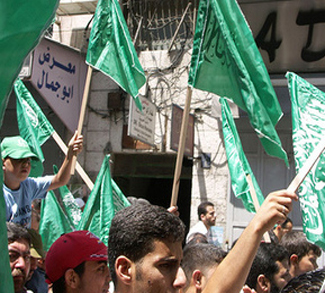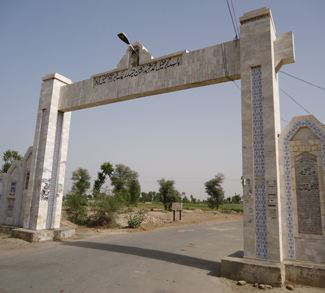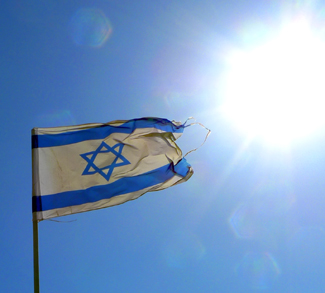FORECAST
American foreign policy vis-à-vis the Middle East under President-Elect Barack Obama is not likely to differ from his predecessor, the universally reviled George W. Bush.
Although Obama spent most of his campaign assailing President Bush on his administrative record, particularly in foreign policy, the President-Elect’s own positions have evolved to closely mirror those of the current President. In fact, Obama’s more nuanced foreign policy statements, and the radical changes in the Bush Administration’s strategy in Iraq, have so closely aligned the two that observers hoping for a change in America’s engagement in the Middle East will be sorely disappointed.
In Iraq, both the outgoing and incoming administrations strategy is essentially identical at this stage. Both prefer withdrawing American troops at an accelerated pace in order to move units to the Afghanistan theatre of war. Indeed, both now espouse a timetable for withdrawal, albeit the Bush Administration agreed to such a timetable reluctantly and in the face of Iraqi insistence. In actuality, the only difference in Iraqi policy is that whereas the Bush Administration has negotiated a three-year timetable for withdrawal (with the first phase of major retreat from forward positions back to US bases slated for mid-2009), Obama had suggested a sixteen-month timetable on the campaign trail, though he pointedly declared that his preference was changeable, dependant on evolving ground realities.
Astonishingly, Obama’s and Bush’s foreign policy vision vis-à-vis Iraq has merged to such a degree that by the end of the US presidential campaign Obama was accusing McCain for being the odd man out!
Similarly, there appears little if any difference in Obama’s foreign policy in the Middle East with regard to other states in the region. Obama agrees with Bush that Syria is playing a nefarious role in the region, that anti-Hezbollah forces must be supported in Lebanon, that Hamas must be isolated and all Gazans embargoed for their continued support of the group, and that the US continue its close economic and military ties with the other major Arab states, including Egypt, Jordan, Kuwait and the Islamist monarchy, Saudi Arabia.
Further, with regard to Israel, Obama’s position is no different than Bush’s. To be fair, though, no national American political figure differs from George W. Bush on Israel. All sides proffer full military, economic and political support for Israel, are determined to ensure that Israel is militarily superior than its neighbours, and are resolute in isolating Hamas (and the Gaza Strip, if necessary) while simultaneously supporting Mahmoud Abbas, the Palestinian President.
As with every American President before Obama, Obama’s foreign policy in the ‘holy land’ is to declare a self-professed desire for peace while supporting Israel in every facet, through every means.
Even if we expand our scope further afield to those countries on the edge of the Middle East, Iran and Afghanistan, we notice a remarkable similitude between Obama and Bush. Both are unyielding in their opposition to Iran’s nuclear capacity (yes, Obama has offered more diplomacy, but his diplomacy will hardly be any different than the UN/EU negotiations aimed at exchanging diplomatic normalizations, security guarantees and economic/energy packages for denuclearization). Both intend to surge troops into Afghanistan and utilize General Patraeus’ strategy of negotiating peace deals (by buying off your enemy with guns & cash) to ebb violence in order to provide the space necessary for a political solution.
Interestingly, it was Obama who had signalled early on his willingness to violate Pakistani sovereignty and territorial integrity to go after al-Qaeda targets in the Pashtun areas in NorthWest Pakistan; a foreign policy vision that George W. Bush has adopted since with full gusto.
It is ironic, then, that Barack Obama, who launched his political career on the national stage owing to his opposition to George W. Bush’s foreign policy now so closely mirrors his predecessor’s strategy in the Middle East, and beyond.
As Iranian President, Mahmoud Ahmadinejad just discovered this past Friday, and as observers will no doubt realize sooner rather than later, much to the chagrin of all those who voted for ‘change’, there will be little foreign policy difference in strategy between George W. Bush and Barack Obama, though the latter’s tactics may more closely resemble the tactics adopted by the former at the end of his tenure.
SUMMARY OF EVENTS: November 3 – 10, 2008
WORLD
Asian stocks and the dollar climbed Wednesday as Democrat Barack Obama was elected US president, raising hopes of fresh action to revive the economy amid the worst financial crisis in decades.
Global stock markets plunged Thursday on growing fears of a deep recession as the financial crisis saps growth and dangerously weakens the banking system.
NORTH AMERICA
United States
Reports coming from top Chinese news outlets suggest the RAND Corporation recently presented a shocking proposal to the Pentagon in which it lobbied for a war to be started with a ‘major foreign power’ in an attempt to stimulate US economy and prevent a recession, according to a report posted on the Pakistan Daily news agency website.
Investors hunkered down Tuesday ahead of a US presidential vote that could be pivotal to the handling of the financial crisis, as central banks kept up efforts to bolster the ailing world economy.
Barack Obama, a 47-year-old first-term senator from Illinois, shattered more than 200 years of history Tuesday night by winning election as the first African-American president of the United States.
In the wake of the financial crisis that has been sweeping the globe, several of the U.S.’ biggest banks have failed or been absorbed by healthier institutions, leaving three giant “superbanks” with an unprecedented concentration of market power: Bank of America, JPMorgan Chase and Wells Fargo.
The United States has given Russia fresh proposals to try to ease its concerns over US missile shield plans and hopes the row can still be resolved, US negotiator John Rood said Thursday.
SOUTH AMERICA
Bolivia
Bolivian leader Evo Morales on Thursday accused the US government of encouraging drug-trafficking as he explained his decision to banish the US Drug Enforcement Administration (DEA).
Venezuela
Venezuela will continue to buy modern weaponry from Russia and other “friendly countries” in the future to boost its defense capability, a senior military official said.
WESTERN EUROPE
The 27-nation European Union took advantage of the U.S. general elections for a change in its relationship with the United States, as its foreign ministers agreed in Marseille on Monday to jointly and courageously send a letter to the next U.S. president calling for a partnership as equals in dealing with major global challenges.
Finance ministers from the European Union (EU) countries agreed on Tuesday to a watered-down plan for reform of the global finance system.
European Union leaders backed a 100-day deadline for the world’s leading economies to decide urgent global finance reforms, French President Nicolas Sarkozy said Friday.
Britain
Internet “black boxes” will be used to collect every email and web visit in the UK under the Government’s plans for a giant “big brother” database, The Independent has learnt.
Italy
The international community should be told the truth about the August war between Georgia and Russia over Tbilisi’s breakaway republic of South Ossetia, the Italian premier said on Thursday.
EASTERN EUROPE
Georgia
Independent monitors question Georgia’s claim that war broke out with Russia in August when it defended against separatist and Russian attacks in South Ossetia, the New York Times said Friday.
Russia
Russia will place short-range missile systems on the EU’s eastern border to counter planned US missile defence installations in Eastern Europe, President Dmitry Medvedev said on Wednesday.
Russia will open military bases in two Georgian breakaway republics, Abkhazia and South Ossetia, in 2009, a source in the Russian Defense Ministry said Friday.
Ukraine
Ukrainian President Viktor Yushchenko and visiting Libyan leader Muammar Qaddafi discussed bilateral cooperation on Tuesday, particularly in the oil and military-technical spheres.
The International Monetary Fund on Wednesday approved a $16.5 billion loan program for Ukraine that includes monetary and exchange rate policy shifts to ease strains from the global financial crisis.
MIDDLE EAST
Gaza Strip/Israel
Hamas fired dozens of rockets at Israel on Wednesday after Israeli forces killed six Palestinian militants in an eruption of violence that disrupted a four-month-old truce along the Gaza Strip’s frontier.
Iran
Iranian Defense Minister Brigadier General Mostafa Mohammad Najjar said on Tuesday that Iranian experts had produced new stealth micro submarines, vessels and lightweight aircraft, the English-language Press TV reported.
Israel
Israeli Foreign Minister Tzipi Livni plans to tell an upcoming Quartet conference that the Jewish country will not sign any interim peace agreement with Palestinians, local news service Ynet reported Monday.
Israeli Defense Minister Ehud Barak said Friday that the Jewish state is not ruling out any option when it comes to dealing with Iran’s nuclear program.
SOUTH ASIA
Afghanistan
Afghan President Hamid Karzai said on Wednesday an air strike by coalition forces earlier this week killed some 40 civilians and wounded about 28 in Kandahar province.
Pakistan
Pakistan’s president warned on Monday the new head of US Central Command that missile strikes on Pakistani territory are “counter-productive”.
Manjit Singh is a contributor to Geopoliticalmonitor.com



